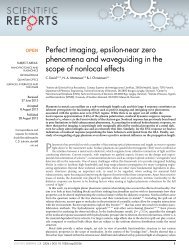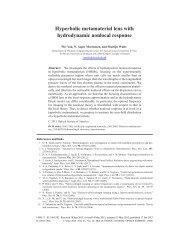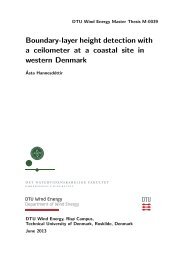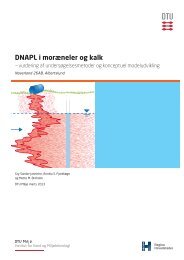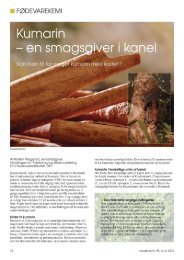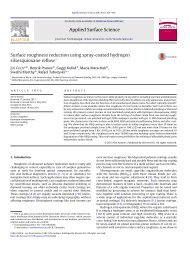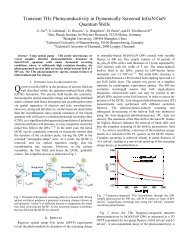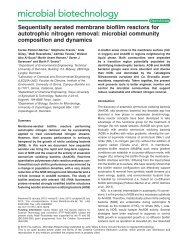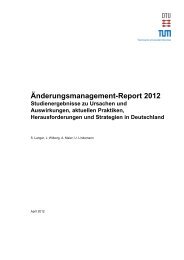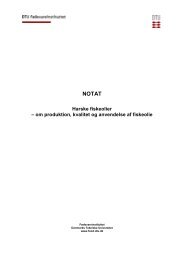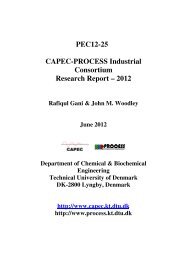A framework for joint management of regional water-energy ... - Orbit
A framework for joint management of regional water-energy ... - Orbit
A framework for joint management of regional water-energy ... - Orbit
Create successful ePaper yourself
Turn your PDF publications into a flip-book with our unique Google optimized e-Paper software.
Recognizing the problem’s complexity, the focus <strong>of</strong> this study is on the<br />
interaction between <strong>water</strong> and electric <strong>energy</strong> (or power) systems, in an<br />
attempt to find methods that can be used in dealing with the <strong>water</strong>-<strong>energy</strong><br />
nexus.<br />
Joint modeling <strong>of</strong> <strong>water</strong> and power systems is difficult because <strong>of</strong> differences<br />
in their spatio-temporal scales and their current <strong>management</strong>. First, power<br />
systems typically span an entire country or region and power supply must<br />
meet demand on a second-by-second basis. In contrast, <strong>water</strong> systems are<br />
spatially defined by a catchment area and hydraulic connections; and the<br />
<strong>water</strong> storage in rivers, lakes, ground<strong>water</strong>, reservoirs and other <strong>water</strong><br />
infrastructure allows some flexibility in balancing supply and demand.<br />
Second, the current <strong>management</strong> <strong>of</strong> these systems is markedly different:<br />
electricity is commonly traded in a wholesale market, while <strong>water</strong> is allocated<br />
using a wide variety <strong>of</strong> <strong>water</strong> rights regimes (Bruns et al., 2005).<br />
In this context, the PhD study was focused on applying optimization<br />
techniques to model the <strong>water</strong> and power systems <strong>of</strong> the Iberian Peninsula<br />
(IP) <strong>joint</strong>ly, with the goal <strong>of</strong> developing a method that can be used to assess<br />
the <strong>water</strong>-<strong>energy</strong> nexus.<br />
The main objectives <strong>of</strong> this research were to:<br />
Develop a method to model the spatial and temporal interactions<br />
between <strong>water</strong> and power systems.<br />
Improve the representation <strong>of</strong> hydropower benefits in hydro-economic<br />
models.<br />
Evaluate the influence <strong>of</strong> spatial aggregation on <strong>water</strong>-power analysis.<br />
Assess some <strong>of</strong> the potential impacts <strong>of</strong> climate change on the <strong>water</strong>power<br />
system <strong>of</strong> the IP.<br />
This thesis provides a summary <strong>of</strong> the three papers submitted <strong>for</strong> publication<br />
as part <strong>of</strong> the PhD study, as well as an overview <strong>of</strong> the methods and the main<br />
findings <strong>of</strong> the investigation. It is structured as follows. Chapter 2 reviews<br />
relevant literature. Chapter 3 presents the case study area where the proposed<br />
methods are applied. Chapters 4 and 5 provide an overview <strong>of</strong> the methods<br />
and the main results, respectively. Chapter 6 summarizes the conclusions <strong>of</strong><br />
this study and Chapter 7 lists the future research directions identified<br />
throughout this project. Chapter 8 includes the list <strong>of</strong> references, and Chapter<br />
9 the three scientific papers.<br />
2




